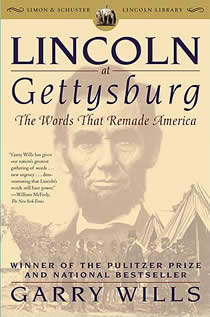Abraham Lincoln's Original Interpretation of Original Intent
 For at least the last few decades, conservative legal scholarship in United States has paid a great deal of attention to the idea of original intent. According to this view, the best way to interpret the Constitution of the United States is to imagine what the writers of that document meant at the time they wrote it, and to make sure that modern interpretations do not stray any further than necessary from this meaning.
For at least the last few decades, conservative legal scholarship in United States has paid a great deal of attention to the idea of original intent. According to this view, the best way to interpret the Constitution of the United States is to imagine what the writers of that document meant at the time they wrote it, and to make sure that modern interpretations do not stray any further than necessary from this meaning.
But Abraham Lincoln was way ahead of current legal scholars in thinking this way about the Constitution. And they might be surprised to find that what he decided the framers of the Constitution signified when they avoided using the words slave or slavery in the document:
The thing is hid away, in the Constitution, just as an afflicted man hides away a wen or a cancer, which he dares not cut out at once, lest they bleed to death; with the promise, nevertheless, that the cutting may begin at the end of a given time.
After reviewing subsequent laws, early in the nation’s history, Lincoln concludes:
We see the plain unmistakable spirit of that age, toward slavery, was hostility in the PRINCIPLE, and toleration ONLY BY NECESSITY.
I am not a fan of limiting ourselves to constitutional interpretations that rely on original intent. In large part, I do not think the writers of the Constitution expected our country to be stagnant. But just as importantly, I do not think we can often determine intent confidently. Lincoln’s creative interpretation stands as an example of just how flexible the idea of original intent can be.
(Click here to view comments)
